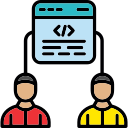Understanding the Low-Code Threat Landscape
Expect misconfigured permissions, overexposed APIs, weak webhook validation, and unsanitized inputs flowing through connectors. These vulnerabilities often hide behind drag-and-drop convenience, making governance essential. Comment with your toughest low-code security surprise so others can learn and avoid repeating it.
Understanding the Low-Code Threat Landscape
Citizen developers unlock innovation, but unmanaged projects create shadow IT. Establish approved workspaces, curated components, and visibility for security teams. Encourage builders to tag projects, document integrations, and request lightweight reviews. Subscribe for templates that help you stand up guardrails without slowing momentum.







